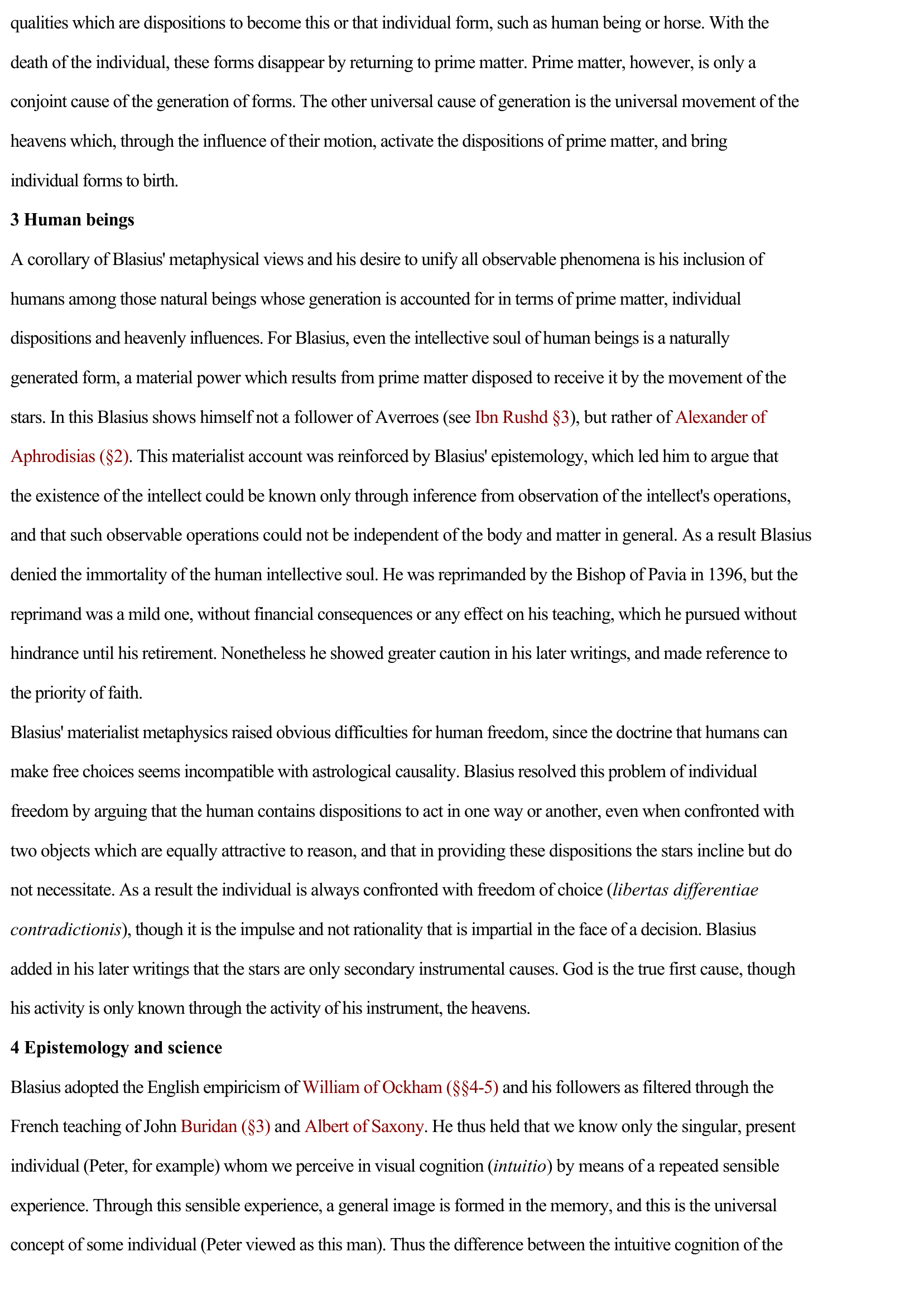Blasius of Parma
Publié le 22/02/2012
Extrait du document
«
qualities which are dispositions to become this or that individual form, such as human being or horse.
With the
death of the individual, these forms disappear by returning to prime matter.
Prime matter, however, is only a
conjoint cause of the generation of forms.
The other universal cause of generation is the universal movement of the
heavens which, through the influence of their motion, activate the dispositions of prime matter, and bring
individual forms to birth.
3 Human beings
A corollary of Blasius' metaphysical views and his desire to unify all observable phenomena is his inclusion of
humans among those natural beings whose generation is accounted for in terms of prime matter, individual
dispositions and heavenly influences.
For Blasius, even the intellective soul of human beings is a naturally
generated form, a material power which results from prime matter disposed to receive it by the movement of the
stars.
In this Blasius shows himself not a follower of Averroes (see Ibn Rushd §3 ), but rather of Alexander of
Aphrodisias (§2) .
This materialist account was reinforced by Blasius' epistemology, which led him to argue that
the existence of the intellect could be known only through inference from observation of the intellect's operations,
and that such observable operations could not be independent of the body and matter in general.
As a result Blasius
denied the immortality of the human intellective soul.
He was reprimanded by the Bishop of Pavia in 1396, but the
reprimand was a mild one, without financial consequences or any effect on his teaching, which he pursued without
hindrance until his retirement.
Nonetheless he showed greater caution in his later writings, and made reference to
the priority of faith.
Blasius' materialist metaphysics raised obvious difficulties for human freedom, since the doctrine that humans can
make free choices seems incompatible with astrological causality.
Blasius resolved this problem of individual
freedom by arguing that the human contains dispositions to act in one way or another, even when confronted with
two objects which are equally attractive to reason, and that in providing these dispositions the stars incline but do
not necessitate.
As a result the individual is always confronted with freedom of choice ( libertas differentiae
contradictionis ), though it is the impulse and not rationality that is impartial in the face of a decision.
Blasius
added in his later writings that the stars are only secondary instrumental causes.
God is the true first cause, though
his activity is only known through the activity of his instrument, the heavens.
4 Epistemology and science
Blasius adopted the English empiricism of William of Ockham (§§4-5) and his followers as filtered through the
French teaching of John Buridan (§3) and Albert of Saxony .
He thus held that we know only the singular, present
individual (Peter, for example) whom we perceive in visual cognition ( intuitio ) by means of a repeated sensible
experience.
Through this sensible experience, a general image is formed in the memory, and this is the universal
concept of some individual (Peter viewed as this man).
Thus the difference between the intuitive cognition of the.
»
↓↓↓ APERÇU DU DOCUMENT ↓↓↓

































